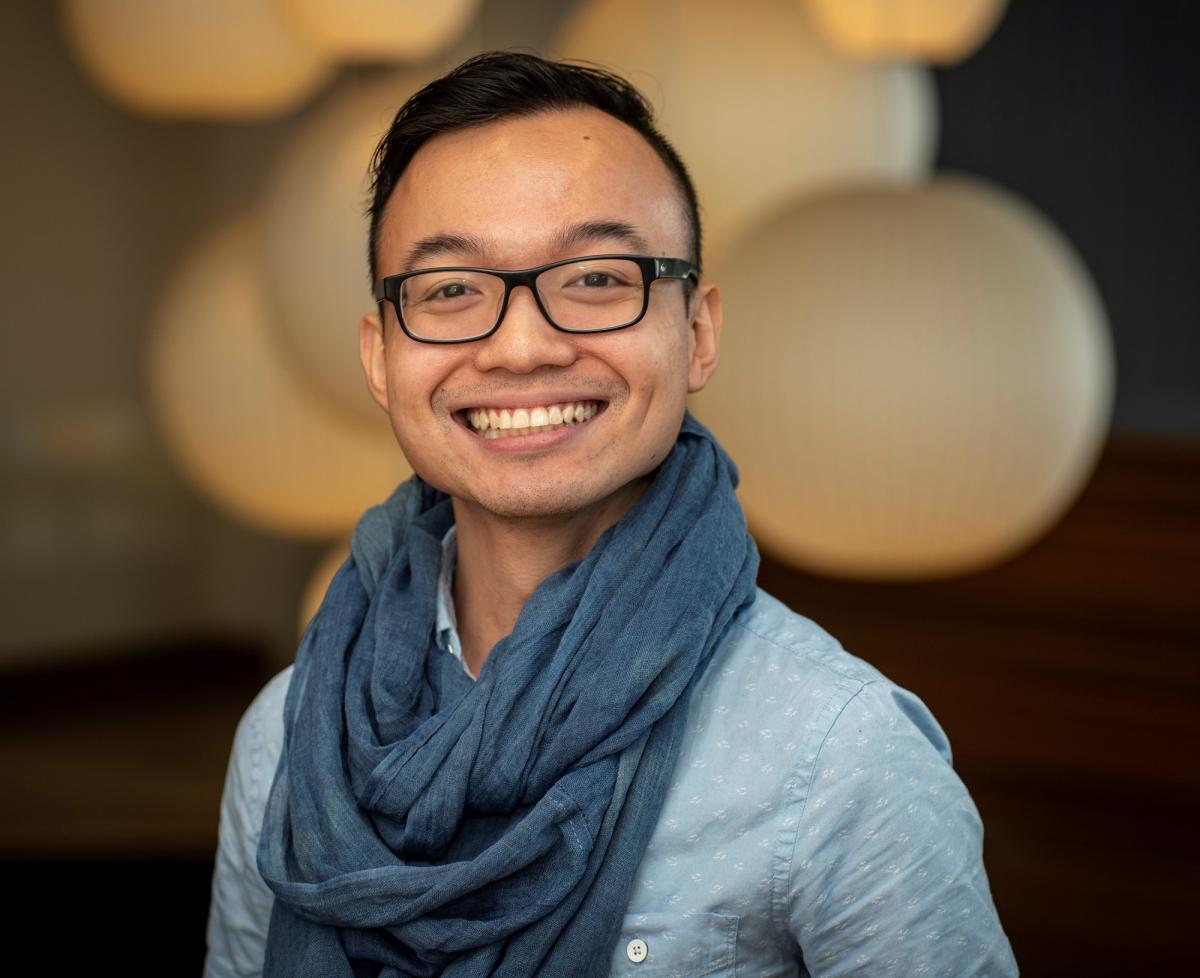Nguyen Tran, Seattle, Washington (USA)
Could you please tell us a little about you and your background?
My name is Nguyen Tran. I am currently a Clinical Research Coordinator at Seattle Children’s Hospital. Professionally, I am helping a team of psychologists developing virtual behavioral parent training for children with ADHD. On the side, I am working on developing questionnaires to measure homophobia using ACT framework. I am a first-generation Vietnamese immigrant, person-of-color, and LGBTQ-identified ACT enthusiast. I am an aspired researcher and psychologist. My research interest is in equity and LGBTQ issues.
How did you become interested in CBS?
In 2015, I got my first job as a clinical case manager at a local non-profit, where I fell in love with clinical work and ACT. Since then, I’ve learned more about CBS. In 2017, I often attended the Washington Chapter meeting and it was then that I was introduced to Dr. Jonathan Kanter, who is mentoring me throughout my research journey/adventure. Dr. Kanter also gave me a book on FAP, which piqued my interest in CBS as a whole.
Could you tell us about your research and application interests?
As mentioned above, equity is an important value of mine. At the moment, Dr. Kanter and I are developing a new way to measure homophobia. In the future, I would like to contribute some more in using ACT in the LGBTQ+ community, as well as increasing access to care and decreasing stigma.
Could you tell us about your experience at the World Conference this year?
ACBS was the first World AND virtual conference that I attended. The experience was immensely positive. I was in awe listening to incredibly knowledgeable and passionate folks presenting their findings and experience. Two talks stood out to me the most, which was “Looking Back to Stay Ahead: Recasting ACT as Behavior Analysis” by Dr. Emily Sandoz and “Functional Analytic Psychotherapy (FAP) and the Soul of the Clinician: Cultivating the Sacred in Therapy and Beyond” by Dr. Mavis Tsai and Dr. Robert Kohlenberg. Dr. Sandoz’s talk stood out to me because she explained ACT in a way that was understandable to someone like me, who doesn’t have a clue about behavior analysis. Dr. Tsai and Kholenberg’s presentation solidifies and demonstrates what I know about FAP for the very first time.
I attended multiple SIG meetings, getting to know people from all around the world, and am now part of the leadership team of the Sexual Gender Minority SIG. These opportunities will never come across without the help of the DEI Scholarship.
Overall, the conference is an experiential exercise. I learned, laughed, and bonded with people who are staying up past midnight to attend a talk that interests them. I was assigned to a breakout room with folks from New Zealand, half a world away.
Was there anything that stood out to you about the CBS community?
It is not an understatement to say the CBS community is extraordinarily welcoming. I was also struck by how willing to help everyone was to me. As a proclaimed outsider, who is not a clinician or researcher, I entered the conference timid and unsure of what I have to say. But I was constantly supported and my voice was always uplifted when I speak.
What did you take back from your experience that has been helpful to you?
Everything I experienced had been helpful for me, both professionally and personally. I was able to connect with Dr. Skinta, who helped me with my LGBTQ project with Dr. Kanter. I was able to know and work with amazingly brilliant folks in the SGM SIG. I learned different research methods and ways to look at data differently, which now informs my research.
Do you have anything else that you would like to share with the community?
I am incredibly grateful that the community welcomes everyone with open arms, especially me. Without a doubt, I commit to pay this opportunity forward and I hope the organization will continue supporting new students and other non-traditional learners/CBS-enthusiasts in the future.
Are you wondering how you can help to disseminate CBS in the developing world through scholarship opportunities like this? Please consider donating to the Diversity, Equity and Inclusion Fund via Paypal by using the button below. Your donation will help us continue to bring increased diversity to our annual conferences by providing funds for individuals who come from diverse backgrounds and who would not be able to attend an ACBS conference without this added financial support.
Every dollar/euro/yen goes to helping those in need -- not a nickel goes to administration. Money collected for this fund is distributed by an ACBS Diversity, Equity and Inclusion committee. Scholarships are awarded based on need and merit.
Please note that this contribution does not qualify as a tax-deductible charitable contribution, according to USA tax law ... but it's a nice thing to do.
